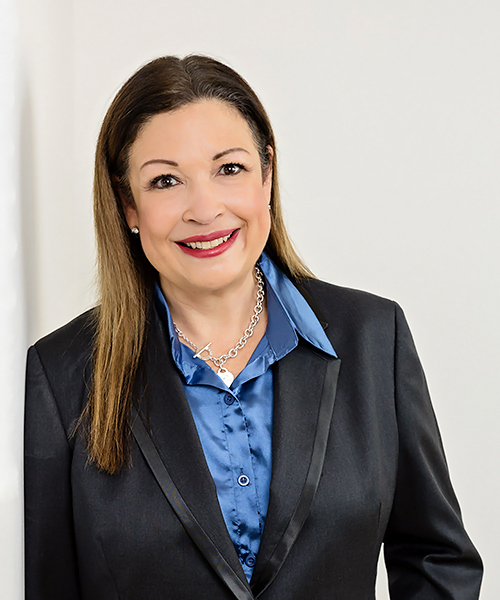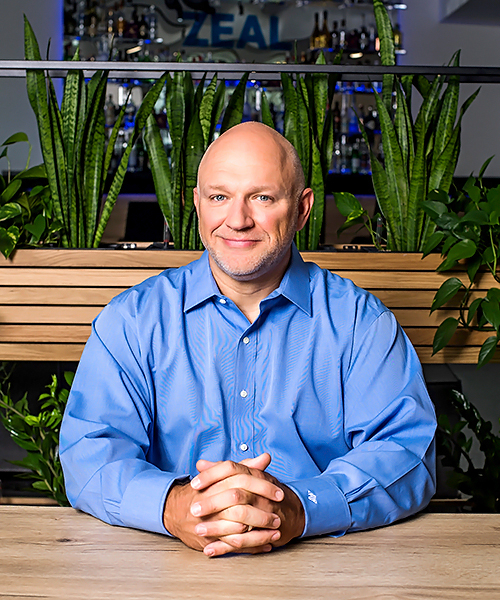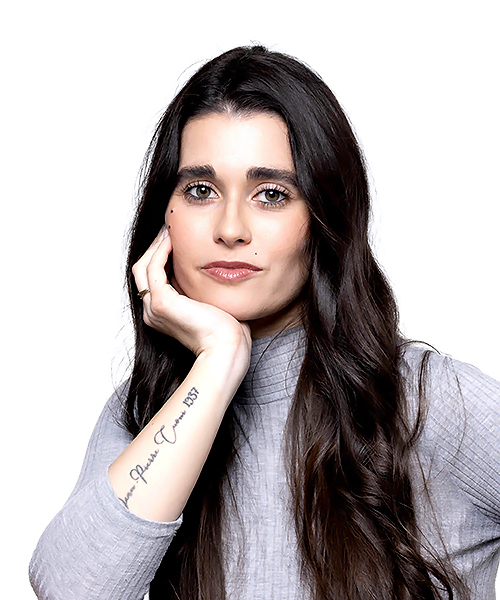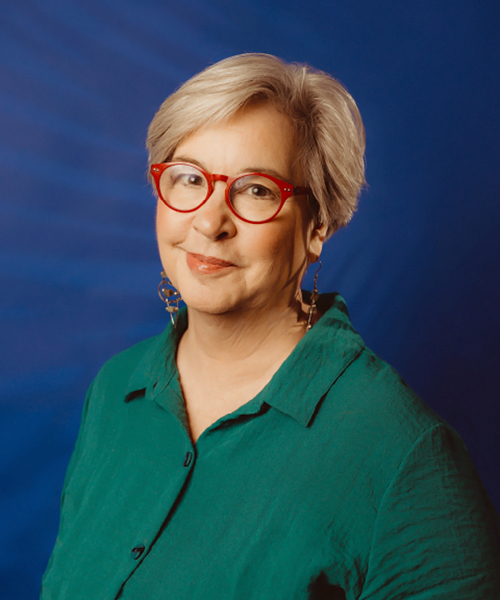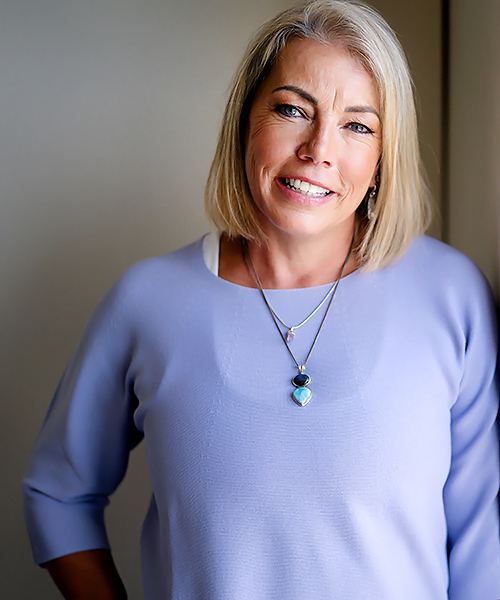Over the past two decades, Mónica has steadily advanced through various positions within the supply chain field.
Leonor Stjepic
Transforming Montessori Education
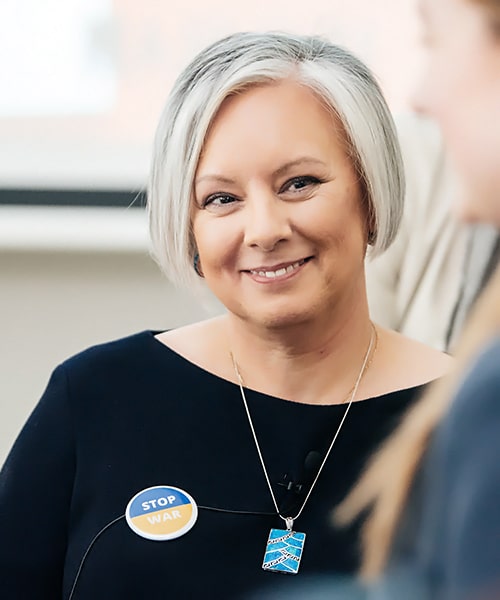
Leonor Stjepic, CEO of Montessori Group
The Montessori Group is an international organisation with social impact at its heart. Its mixture of commercial and charitable entities allows it to be innovative, fast paced and flexible in its approach and respond to societal needs quickly. For example, within a week of lockdowns due to Covid, it had produced and distributed activity sheets to parents whose children were at home and needed additional support. It teamed up with an award-winning social enterprise to deliver food boxes to families that had been affected economically due to the lockdowns in the UK and supported a group of volunteers collecting baby and toddler-essential supplies to deliver to Ukrainian refugees, sending 250,000 items within 48 hours.
However, this has not always been the case for the 68-year-old organisation. The transformation in its purpose, putting social impact as the main driver for its work, and the way it has expanded internationally is down to the leadership of its CEO, Leonor Stjepic, who took over the position just four years ago.
Having spent the first third of her career in the private sector and the last 20 years as a CEO, leading and transforming two other NGOs, Leonor brought a combined experience and expertise of private/civil society sectors as well as a focus on values-led leadership.
Diversity, inclusion, respect, creativity, and innovation are all values that are integral to the Montessori Group – and coincidentally reflect Montessori values. All staff at the Montessori Group are expected to “walk the talk” and, as CEO, Leonor believes it is her responsibility to lead by example. Apart from addressing the modern-day needs, the Montessori Group believes that there is a need to change the education system and its mission is just to do that so millions of children can reach their full potential.
When asked about her vision and the need for the education system to change Leonor had this to say, “Our global education system is a product of the industrial revolution, where workers were required to work machines.
There was a requirement for skills of literacy and numeracy and the ability to retain knowledge to follow a process. Workers often stayed in the same job, and even the same company, all their lives. Those who could, may have moved up the corporate ladder but, there was an assumption that someone would continue to do the same job for as long as they worked. That world has now disappeared. In this digital age, we still need literacy and numeracy, but I can obtain more information from the internet on my mobile phone than I ever learnt during my whole school career. It is well recognised that we need the skills called social and emotional or life skills – creativity, innovation, collaboration, critical thinking. Yet the focus, in many schools, remains on the traditional way of teaching and expecting children to learn great chunks of facts. Over 100 years of Montessori has proven, time and time again, that children who are given access to the Montessori approach – where we support learning through activity, with a focus on the social and emotional skills but also on literacy and numeracy –benefit regardless of their socio-economic backgrounds. In fact a longitudinal study carried out by Professor Angeline Lillard, compared students in a high-poverty U.S. city who attended Montessori schools with children who attended other schools. The children were assessed over three years on likely indicators of later success. The research found that those who attended Montessori achieved more, in fact their achievements were‘well beyond’ the achievements by the lower-income students who attended other schools and ‘greatly reduced the achievement gap across the preschool years.’ We live in a specific point in time, historically, where Montessori is needed more than ever, and it is our vision to deliver quality Montessori education to everyone.”
Leonor often gets asked to talk about leadership and mentors a number of young men and women who want to be leaders. When asked about the qualities of leadership that she felt were important, her answer was unexpected. “Training and qualifications have their place, but what leaders really require are the right mindset – curiosity, emotional resilience, empathy and critical thinking. Above all, it is important for leaders to be authentic, be role models and remember that any company is made up of people. If you don’t understand and manage emotions, you won’t have a successful company.”

Company
Management
Leonor Stjepic
CEO of Montessori Group
Description
The Montessori Group is one of the world’s leading providers of Montessori training to meet the needs of the Educators and specifically Early Years communities in the UK and around the world. To date, we have trained over 9,000 Montessori educators worldwide.
Read Magazine

View more profiles
Paul is the executive sponsor for the Customer Operations department, where, together with the team.
Her current focus lies in mentorship, alongside her passion for strategizing and business development.
Noëlle Demole's perseverance and dedication to bringing about social change are shown by her path to founding EGIDAYS.
Michelle Fiegehen, an Australian senior director currently based in the Philippines, leads and develops Yempo’s operations.
As the Global Communications Director at Kushki, Eva oversees all internal and external communications
Cindy Eggleton values relationships deeply, dedicating much of her time to friends and family. She has a passion for art and unique local businesses..
Complete Framing Solutions stands out from the competition due to its comprehensive approach to construction.
Sally Estlin embraces a powerful mantra guiding her through life's ebbs and flows: Let go, Step up, and Be more.
Tara Home Consulting distinguishes itself by not only advising on what needs to be done or which software to buy but by deeply integrating into the client's company.
Rick also believes that successful collaboration entails active engagement, empathy, accountability and a readiness to work towards common objectives.
In his role as CFO of Purple Brand, Jonathan Melegrito leads both the Finance and People & Culture teams






